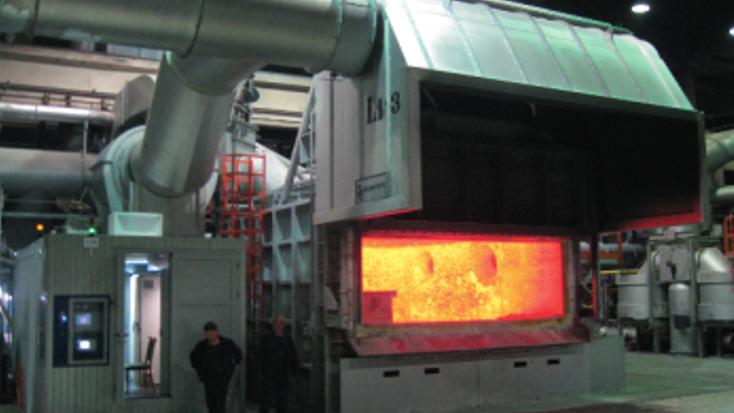Efficient furnaces in Serbian aluminium production

Investor
Impol Seval d.o.o.

Location
Sevojno, Serbia

Investment
Replacement of two energy-intensive blast furnaces

Investment Size
EUR 2,608,752

Energy savings
19,072 MWh per year

CO2 savings
3,396 tonnes per year

Impact
Lower energy consumption, lower operational and maintenance costs, decreased CO2 emissions, simplified production process

Donor
European Union, Western Balkans Investment Framework

A producer of rolled aluminium materials saves energy and put gases to good use.
Impol Seval AD from Sevojno was founded in 1969 and began its production in 1975 with an installed output performance of 35.000 tons of rolled aluminium products during that year. Today, Impol Seval produces a wide range of aluminium materials, which are sold worldwide to make final aluminium products.
The company’s management was seeking ways to make its production more efficient and, in particular, wanted to reduce its consumption of natural gas. The company approached Banca Intesa Serbia, a Partner Financial Institution of WeBSEFF. The WeBSEFF team assessed the financial-technical parameters and eligibility of the proposed project.
The investment included replacement of old energy-intensive blast furnaces with two new efficient furnaces for melting the aluminium blocks and scrap, which are also equipped with regenerative burners that recapture and utilize waste heat from flue gases. The new energy-efficient melting furnaces resulted in energy savings of 50%, while at the same time improving working conditions and lowering operational and maintenance costs.
The total investment of EUR 2,608,752, out of which the WeBSEFF loan was EUR 2,275,000, resulted in the following annual benefits: energy savings of 19,072 MWh, CO2 emissions decrease of 3,396 tCO2, monetary savings of EUR 724,828. In addition to these benefits, the company received EUR 126,200 of WeBSEFF financial incentive.
The Western Balkans Sustainable Energy Financing Facility (WeBSEFF) was developed by the European Bank for Reconstruction and Development (EBRD) and is supported by the European Union and the Western Balkans Investment Framework (WBIF).



